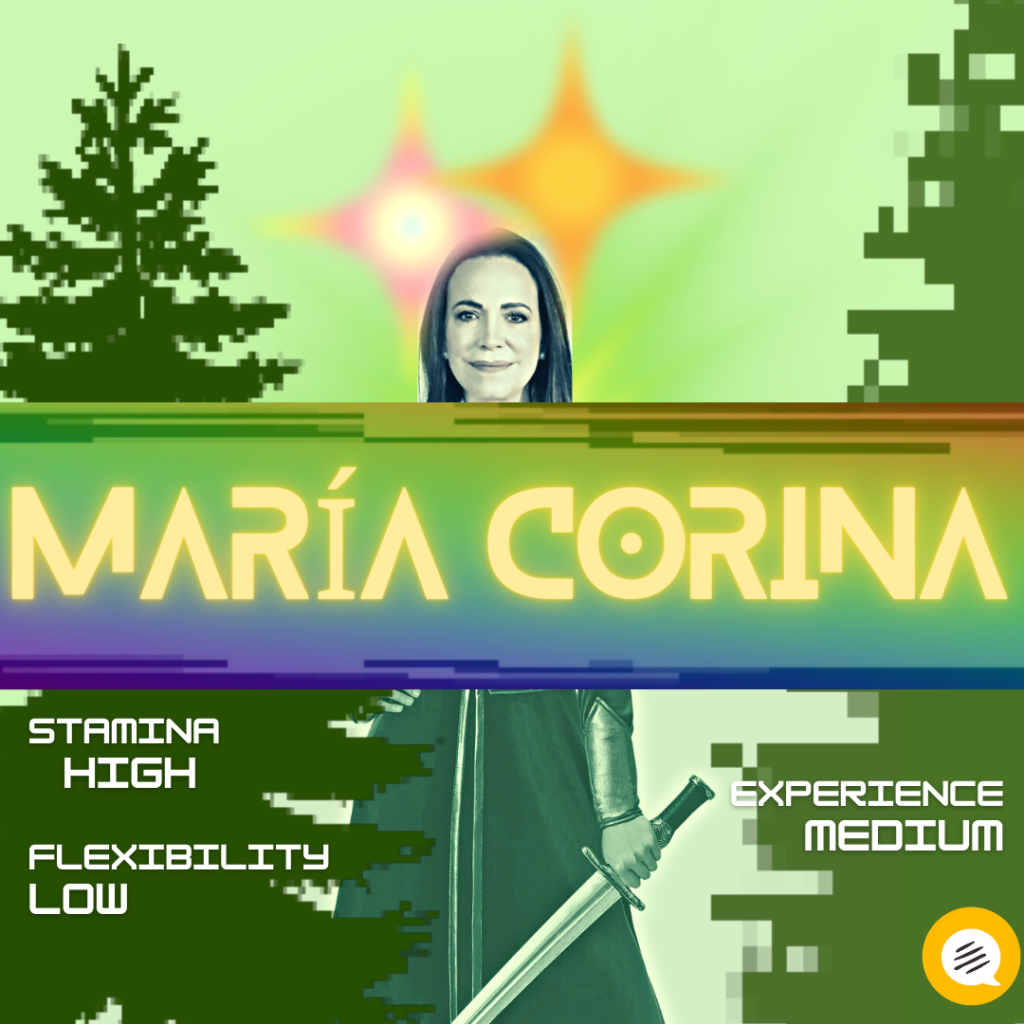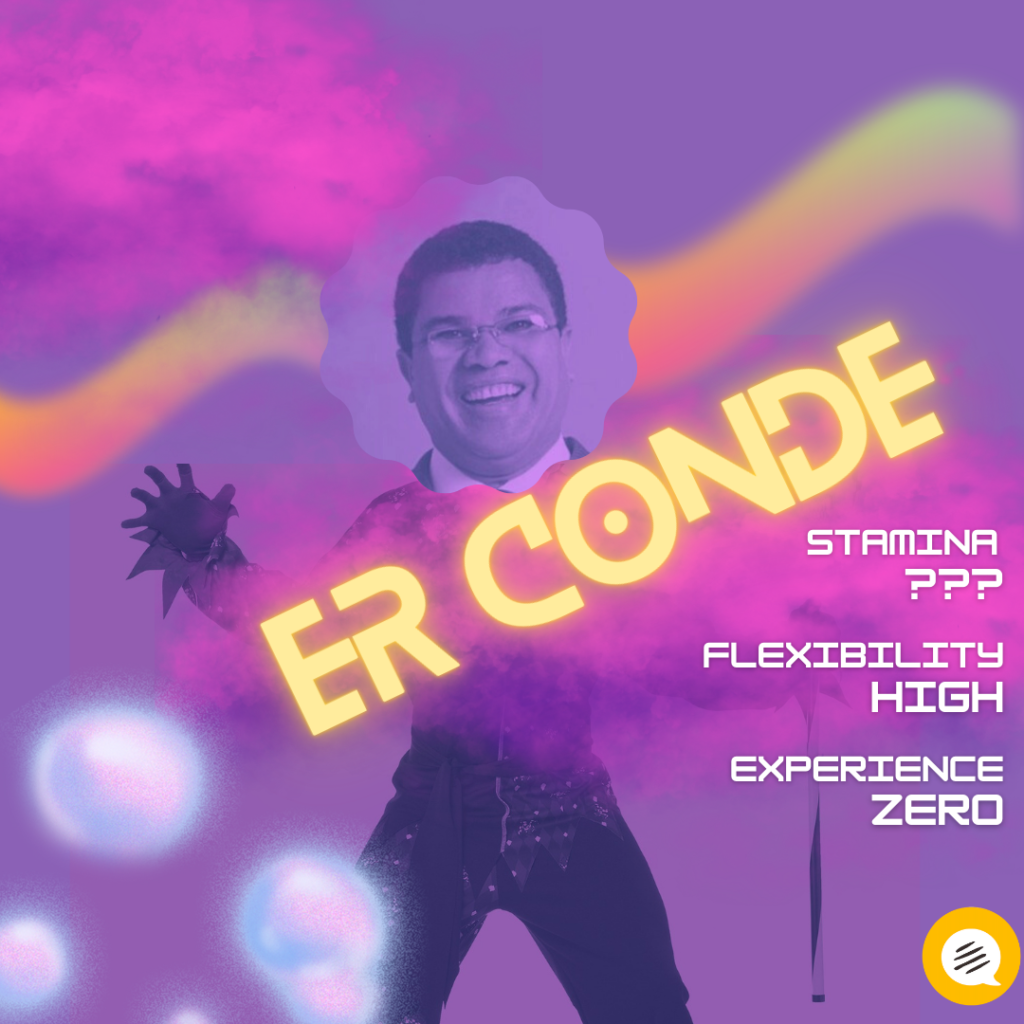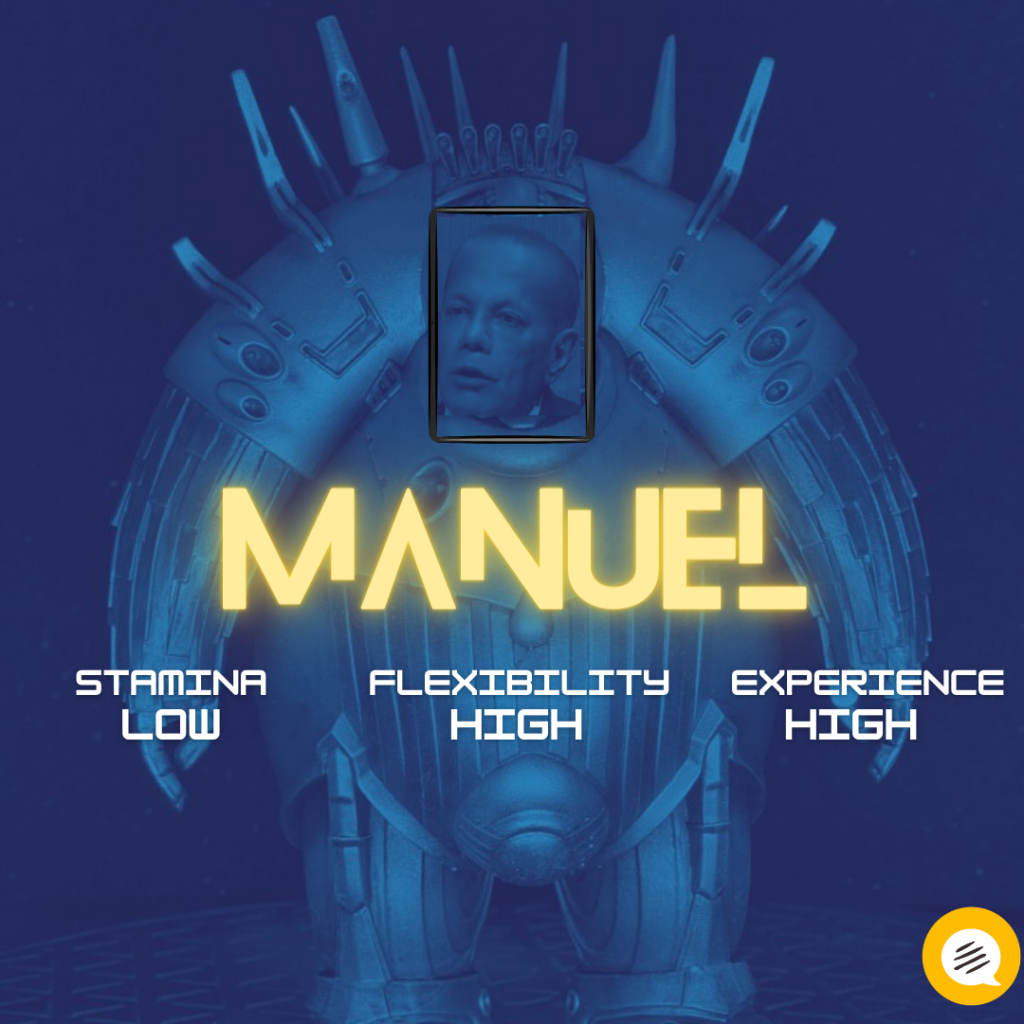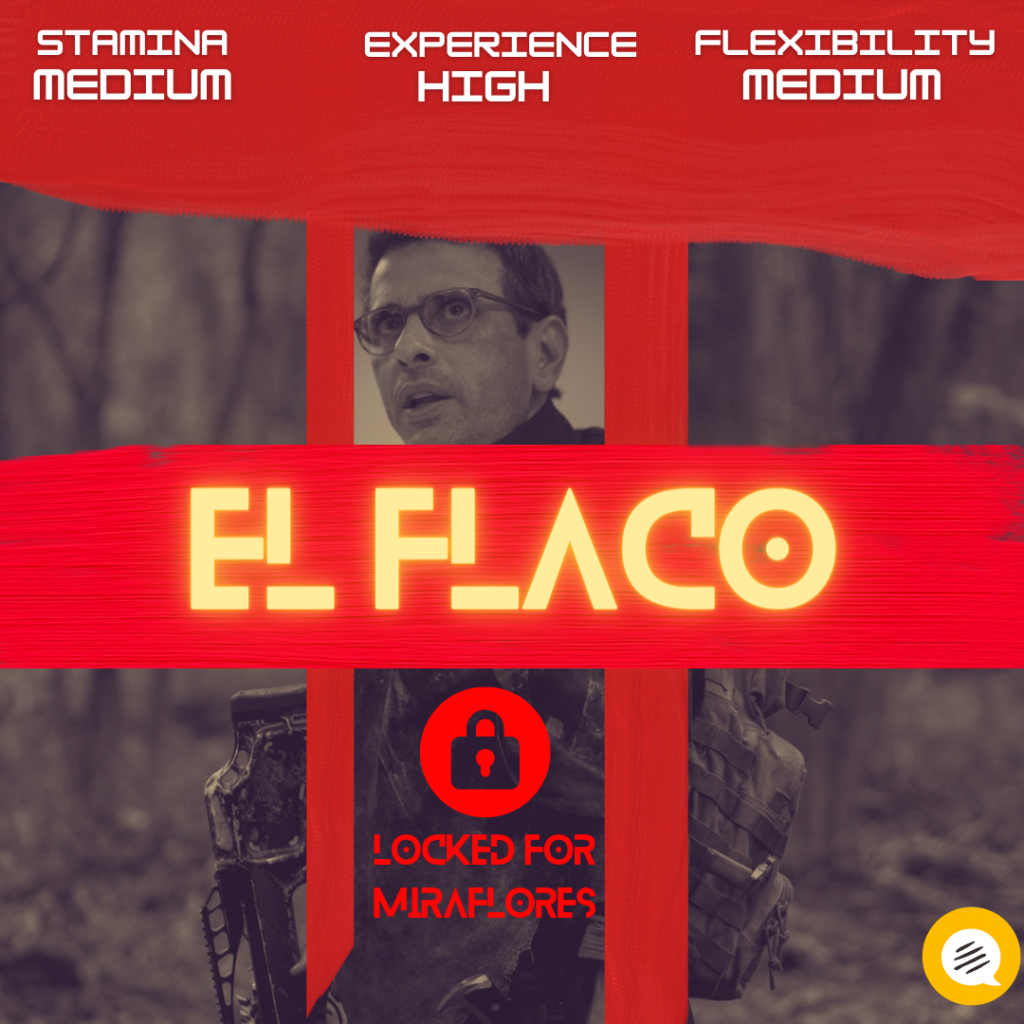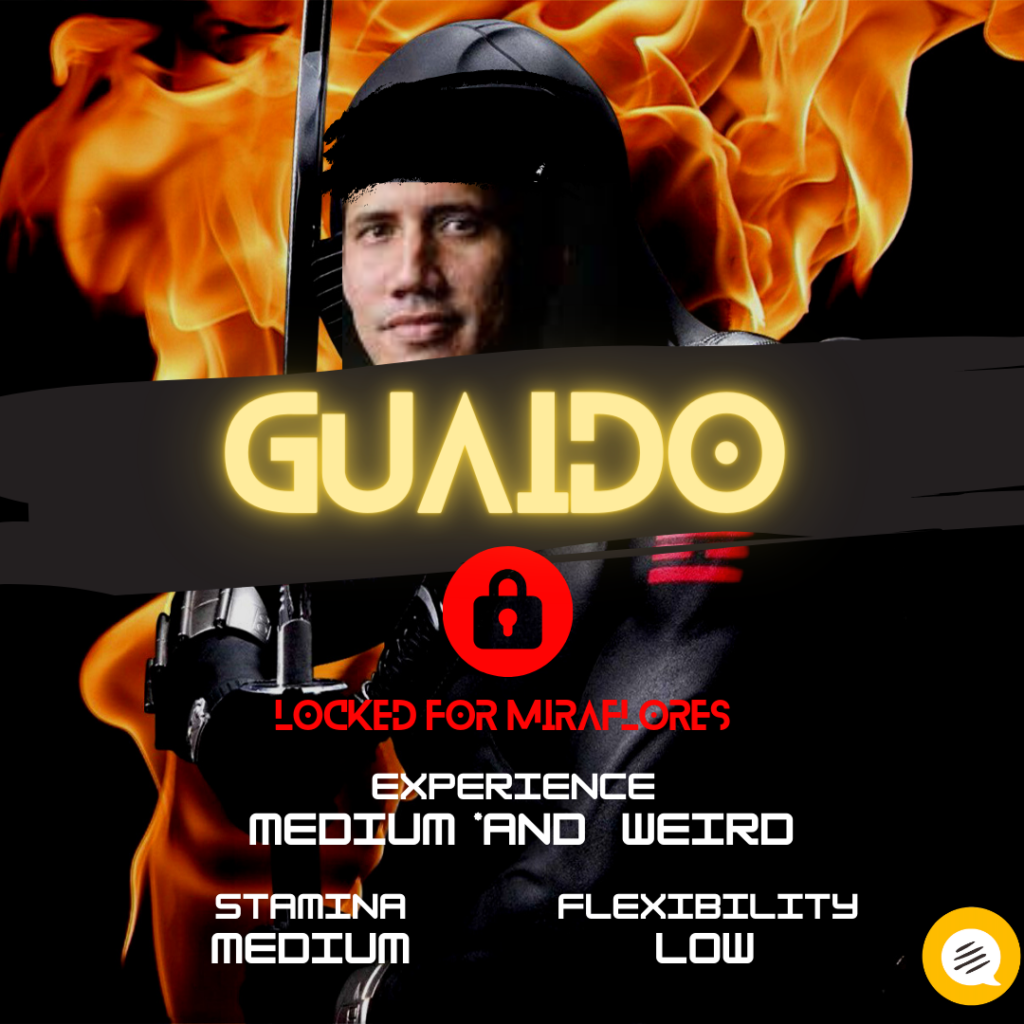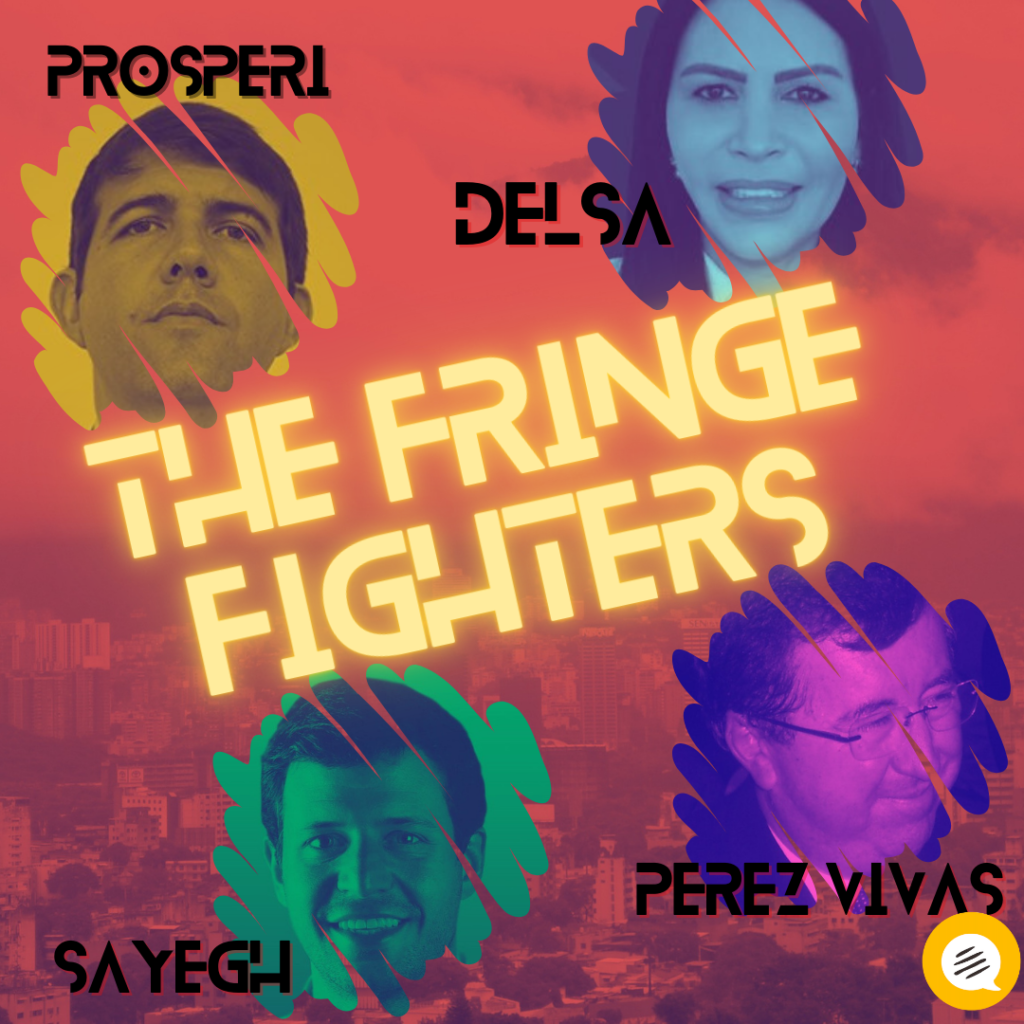Venezuelan Opposition Primary Cheat Sheet


There’s still a lot to unpack about the upcoming opposition primary election in Venezuela ahead of the presidential election against Nicolás Maduro—which is supposed to happen in 2024. Nobody knows whether millions of Venezuelans abroad will be able to vote or if the Electoral Board (CNE) is serving as an arbiter or at least a logistical structure for the primaries. But we have a good idea about who’s eager to run, besides those who still see themselves as an ace under the sleeve.
At least ten candidates have stepped up, although (por ahora) no one really rises to the voters’ unrealistic expectations: new faces but also experience and stamina or character or superhero immunity to resist what it means to challenge a regime investigated for crimes against humanity (which, in summary, is what different surveys show the people expect from the chosen one). Naturally, those candidates need not only popularity but organization in the field, especially when it comes to primaries. This is when counting with a big party makes sense; only Acción Democrática, Un Nuevo Tiempo, Primero Justicia and, on a lower scale, Voluntad Popular, have the muscle to activate grassroots, promoters and nationwide observers. Despite their efforts, Vente Venezuela, Encuentro Ciudadano and Fuerza Vecinal, among others, lack that critical advantage.
Given that no candidate checks all the boxes, the coming months will tell which among them will end up absorbing endorsements and forging alliances, both for the primaries and an eventual presidential race next year. And even if the primaries fall apart—as is possible—, the race will show who could be an effective candidate chosen by the big parties and who could decide to run as an independent.
Many things can still change. The negotiations in Mexico can restart, releasing the ban on Henrique Capriles for instance, or some contenders may quit. For now, you can compare every player and choose your favorite to see how much he or she will last.
1. María Corina Machado
36,8% of opposition and independent voters would vote for her in the primaries, according to More Consulting’s survey in January 2023
STRENGTHS
- Not banned for running for office.
- Coherent, hardline profile.
- Free of blame: (i) on the failures that the general public place on the opposition; and (ii) on the interim government’s scandals.
- Popular among the diaspora.
- Good communication skills, both in social media and on interviews, able to reach young voters.
WEAKNESSES
- Little party organizational power.
- Little alliance capacity. Actually, people said to More Consulting they wouldn’t vote for her because the big parties would not support her.
- Too entrenched in her narrative and apparently with little disposition and capacity to negotiate with the government.
- She is the Antichávez, which may sound like a good thing, but down the line it may prove problematic when trying to reach out to chavistas.
2. Benjamín Rausseo “Er Conde del Guácharo”
17,5% of opposition and independent voters would vote for him in the primaries, according to More Consulting’s survey in January 2023
STRENGTHS
- Not banned for running for office.
- He’s the “outsider”. Save for a timid presidential candidacy in 2006, he’s been out of politics, so he would appeal to those 43.4% of voters who define themselves as ni-nis, neither chavismo or opposition in the More Consulting poll.
- He’s famous.
- He fits the myth of the self-made Venezuelan who made his money by making others laugh, without robbing anyone.
WEAKNESSES
- No party, no grassroots.
- Zero political experience.
- Nobody knows what he has in mind or how truly independent he is. He just said he is a liberal (which in Latin America means being pro-market, individualist).
- He’s too funny. Voters said to More Consulting he should remain doing comedy.
3. Manuel Rosales
11,9% of opposition and independent voters would vote for him in the primaries, according to More Consulting’s survey in January 2023
STRENGTHS
- Not banned for running for office.
- Good party organization with Un Nuevo Tiempo, especially in Western Venezuela.
- After being elected governor of Zulia back in 2021, he has managed to spread the message that some functional order returned to the state.
- An experienced negotiator who can deal with chavismo. Maybe even in a transition?
WEAKNESSES
- He lost badly to Chavez in 2006.
- Too ancient for young voters, too burned for boomers.
- Rosales prioritized political survival so much he tends to keep silent about subjects like human rights and electoral conditions, and shows himself along Maduro on camera.
- Rumors about his poor health.
4. Henrique Capriles Radonski
7,7% of opposition and independent voters would vote for him in the primaries, according to More Consulting’s survey in January 2023
STRENGTHS
- Primero Justicia named him its candidate, which guarantees nationwide mobilization.
- Experience as congressman, mayor, governor and presidential candidate. No one else was closer to defeat Chavez (2012) and Maduro (2013).
- A convinced moderate, to the point of ignoring his party’s more combative stances.
- Ability to forge alliances with other parties.
WEAKNESSES
- Banned for running for office.
- Strong perception about him as too centrist. Opposition voters still blame him for not defending his (never proved) victory over Maduro ten years ago.
5. Juan Guaidó
6,1% of opposition and independent voters would vote for him in the primaries, according to More Consulting’s survey in January 2023
STRENGTHS
- Voluntad Popular would provide some relevant nationwide support
- Currently the opposition figure that’s better known abroad. He would probably get some support due to commitments made back in 2019.
- He’s resilient: stood as interim president long after the constitutional terms and political function of that figure expired
- He holds a brand of open challenge against Maduro and clear denunciation of human rights violations
WEAKNESSES
- Banned for running for office.
- He absorbs most of the blame for the failure of the interim government at replacing Maduro and managing Venezuelan assets abroad with efficiency and transparency. In the More Consulting survey, he’s the opposition candidate more despised among non-chavista voters, with a disapproval rate of 28%.
- Too radical for the moderates.
- His probable allies may be among small parties like La Causa R and Encuentro Ciudadano.
The Fringe Fighters
Carlos Prosperi
- Supported by AD, the oldest of parties
- Little known, unskilled communicator
- Low political experience
Elías Sayegh
- Supported by Fuerza Vecinal
- Successful mayor in El Hatillo, Caracas
- Distrusted for his party’s closeness with chavismo
Delsa Solórzano
- Fresh face, hard stance, experienced negotiator
- Lacks solid organization
- No experience in office
César Pérez Vivas
- Weak support outside Tachira, where he was a governor
- Old guard with no solid party support
Caracas Chronicles is 100% reader-supported.
We’ve been able to hang on for 22 years in one of the craziest media landscapes in the world. We’ve seen different media outlets in Venezuela (and abroad) closing shop, something we’re looking to avoid at all costs. Your collaboration goes a long way in helping us weather the storm.
Donate


